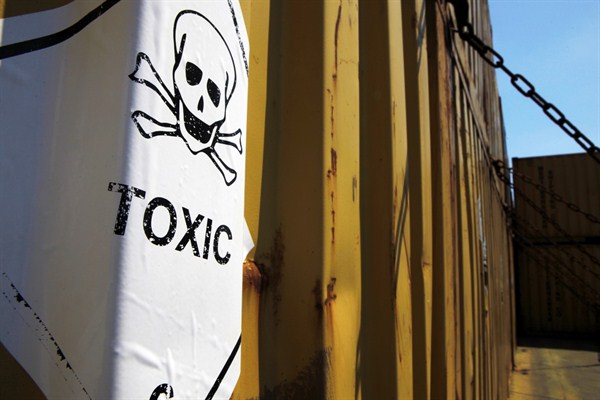In August, in a village called Marea, north of Aleppo, a mortar loaded with mustard gas and allegedly fired by militants from the self-declared Islamic State landed on a house. The chemical weapons badly burned three family members inside and killed an infant. Months earlier, between March and May, helicopters from Syrian President Bashar al-Assad’s regime dropped barrel bombs on the rebel-held province of Idlib. Unlike the usual rudimentary explosives favored by Assad’s forces, these barrels were loaded with toxic chemicals, most likely chlorine. At least six people were killed, including three children from the same family.
The details of these chemical weapons attacks come from a fact-finding mission to Syria by the Organization for the Prohibition of Chemical Weapons (OPCW) earlier this year. The OPCW is the international body that Syria joined in 2013, as part of a Russia-negotiated maneuver to avert U.S. airstrikes after the Syrian regime’s deadly chemical attacks on the rebel-held Ghouta suburbs of Damascus, in which some 1,400 civilians were killed. In the aftermath, Syria declared and surrendered its arsenal of 1,300 tons of chemical weapons, ostensibly allowing U.S. President Barack Obama to save face for not enforcing his own “red line” on Assad’s use of chemical weapons.
According to the OPCW, more than 99 percent of Syria’s stockpile of chemical weapons has since been destroyed, including more than 580 tons of what is used to make sarin and 20 tons of sulfur mustard, otherwise known as mustard gas. However, doubts remain regarding the accuracy of Syria’s accounting to the organization. Late last month, the European Union envoy to the OPCW decried the “gaps and contradictions” in Syria’s chemical weapons declarations, saying that Damascus’ dodgings “make it impossible to have confidence that its chemical weapons program has been irreversibly dismantled.”

